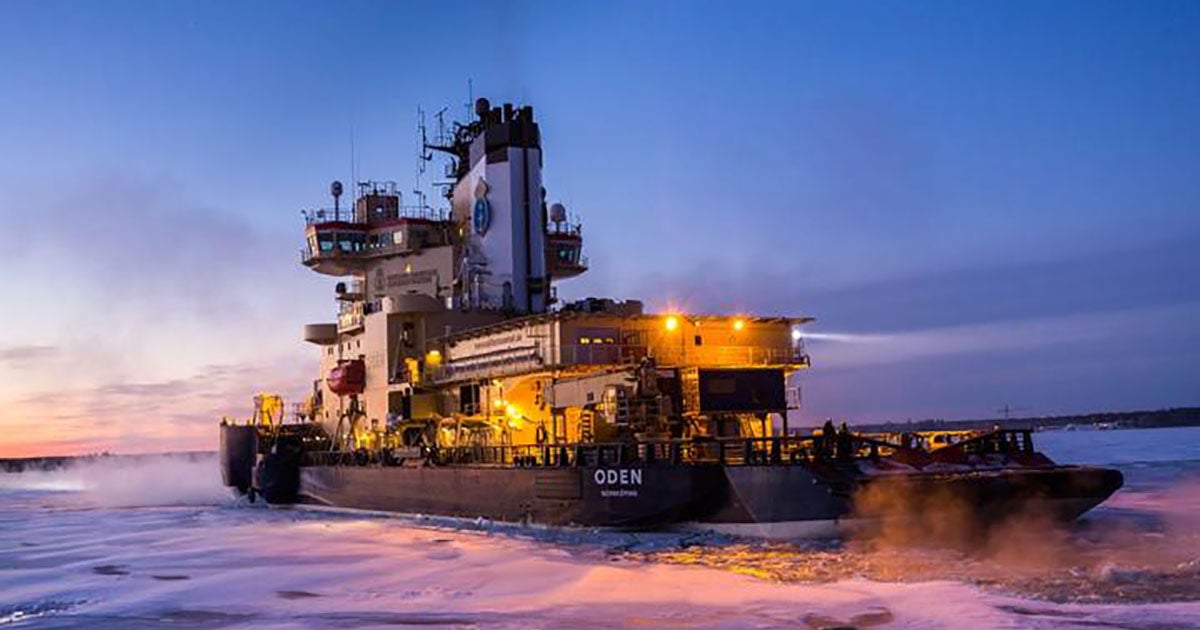KINGSTON, R.I. – August 2, 2019 – A science expedition led by the University of Rhode Island’s Graduate School of Oceanography studying the rapidly changing Arctic Ocean has made a discovery that’s being hailed as an “Arctic miracle.”
The Swedish icebreaker Oden, which is carrying the Northwest Passage Project expedition, salvaged a research buoy that contained a year-long recording of the high-pitched clicks made by Beluga whales.
The buoy had been launched by the Scripps Institution of Oceanography in San Diego in the Canadian Arctic to use the sounds it recorded to better understand the impact of climate change on the region’s marine life, according to a Reuters story. The buoy, deployed on the seabed of the Barrow Strait since 2013, hadn’t been maintained since 2017. The Oden, which found it by chance stuck in a hazardous pack ice on July 25, was able to free it with its reinforced prow, the Reuters report said.
“We were watching it drift away via satellite and it happened to drift past the Oden,” Scripps graduate student researcher Josh Jones told Reuters. “It’s great, amazing luck.”
“I think it’s groundbreaking because [the buoy’s] basically mapping the passage of whales and other marine mammals through these really important passageways between the Pacific and the Atlantic,” Brice Loose, URI associate professor of oceanography and the expedition’s chief scientist, said in video footage transmitted from the Oden that was shared with Reuters. “So really more than the loss of the instrument, it’s the loss of the data if we weren’t able to recover this, and so that’s why we’re here.”
The Northwest Passage Project, carrying a team of natural and social scientists, departed July 18 on an 18-day, 2,000-nautical-mile voyage through the Arctic Ocean. The expedition returns to Thule, Greenland, on Aug. 4.
The research team, supported by 25 post-secondary students from the U.S. and Canada, has collected water, ice and air samples to improve understanding of the effect of climate warming on the environment and diversity in the Canadian Arctic Archipelago.
Through the first live, interactive broadcasts from the Arctic Ocean, the URI Inner Space Center’s advanced telepresence technology has provided unprecedented ways for the public to follow researchers at sea in real time. Along with Facebook Live broadcasts, special events have been held at three prestigious science centers: the Smithsonian National Museum in Washington, D.C.; the Exploratorium in San Francisco; and the Alaska SeaLife Center in Seward. Broadcasts were made possible through major funding from the National Science Foundation and support from the Heising-Simons Foundation.
To see reports from the expedition, go to the Northwest Passage Project website.

